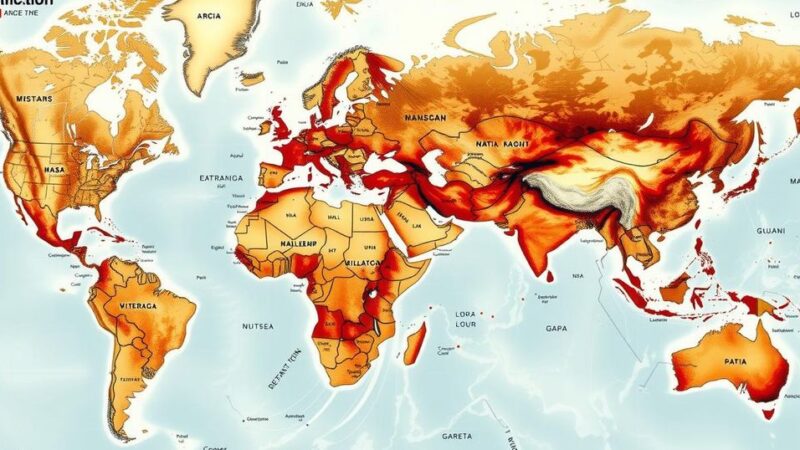Egypt has proposed new measures to restore the Gaza ceasefire, including the release of hostages and the resumption of humanitarian aid. Hamas appears open to the proposals, seeking guarantees for negotiations on ending the conflict. The backdrop includes significant casualties from renewed Israeli air strikes, highlighting the urgent need for a resolution to the crisis.
Egypt has introduced new proposals aimed at reinstating the ceasefire in Gaza, which include the potential release of six hostages held by Hamas, alongside negotiations to conclude the ongoing conflict. According to sources familiar with the proposal, the plan emphasizes the resumption of humanitarian aid, which Israel had previously blocked, and aims to facilitate aid deliveries into the region. Moreover, Israel had also curtailed electricity supplies, enhancing the urgency of these humanitarian efforts.
Hamas has indicated a willingness to accept Egypt’s proposals but seeks guarantees that discussions regarding an end to hostilities and Israeli withdrawal will commence upon the release of the hostages. This development follows Israel’s renewed bombardment of Gaza, which has resulted in significant casualties, including hundreds of fatalities in recent air strikes. A source articulated, “The main objective of the new proposals is to stop the hostilities and allow humanitarian aid to flow into Gaza again.”
The proposals are still in a preliminary stage and are subject to modification for mutual agreement. Israeli Prime Minister Benjamin Netanyahu acknowledged the escalation of military action, declaring that recent operations are merely the commencement of a larger campaign. While Hamas has not officially commented on the new proposals, a senior representative confirmed the group’s willingness to engage in negotiations regarding these terms.
Previously, ceasefire discussions encompassed negotiations for Israel’s withdrawal from Gaza, yet Israel sought to extend initial ceasefire arrangements. A counter-proposal by U.S. envoy Steve Witkoff included terms for a temporary truce and the release of numerous hostages. In an effort to make the Egyptian plan more palatable for Hamas, the proposal stresses the release of six hostages, which aligns with Hamas’s bargaining strategy, given its diminished strength following prolonged conflict.
The terms of Egypt’s proposals notably lack provisions for the expulsion of Hamas leaders from Gaza, contrasting with Israel’s stated objectives. This initiative is particularly significant for Egypt, the most affected of the mediators involved, sharing a border with Gaza. The ongoing war, initially triggered by a Hamas attack that claimed 1,200 lives in Israel, has had dire consequences, decimating Egypt’s revenue from the Suez Canal and leading to massive casualties and displacement within Gaza, where over 48,500 Palestinians have been reported deceased and millions displaced.
In conclusion, Egypt’s proposals for reinstating a ceasefire in Gaza underscore the pressing need for humanitarian assistance and address the sensitive issue of hostages held by Hamas. The ongoing military actions have exacerbated the humanitarian crisis, prompting these renewed negotiations. With various stakeholders, including the US and Qatar, involved in mediating, the future of peace in the region remains contingent on the acceptance and modification of these proposals to meet the needs of both parties.
Original Source: www.thenationalnews.com






